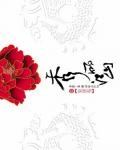Volume 1: Birth! Seven time travelers Chapter 91: The Foundation of the Nation Has Decayed (Part 3)
The foundation of any dynasty of the Chinese Empire must be the central government's effective control over the people and land of the country. The more firmly the central government controls this, the stronger its national strength will be.
However, the Yuan Dynasty's rule was too crude, crude, and brutal... Compared with the previous founding monarchs, Zhu Yuanzhang's was undoubtedly the worst. The Ming Dynasty did not accept the Yuan Dynasty's household registration at all. Without household registration, how could we collect taxes? Without the collected money and grain, how could we support the people? How could we support the officials? How could we support the soldiers? How could we support Zhu's relatives and children?
Old Zhu had no choice but to start all over again.
In the third year of Hongwu, Zhu Yuanzhang issued an imperial edict in plain language, which roughly meant: Now that society is stable, everyone will live a good life. Officials of the Ministry of Revenue, you design a form, and then hand it over to the emperor for review and approval, and then print it in large quantities and hand it over to the various prefectures and counties below. Officials of various prefectures and counties should fully publicize and mobilize in their jurisdictions in advance. Then organize the people to fill out this form carefully. After the people fill it out, the government offices at all levels will submit it for summary step by step. After that, the emperor will send people who can read and count in the army to review it. After that, the head of the army will hand over the review report to me personally.
The form in this imperial edict is called a household registration card. It is one foot and three inches long and one foot and two inches wide. After being folded twice, it is divided into three parts: right, middle, and left.
On the right is the imperial edict of Emperor Hongwu. In the middle part, the birthplace of a household, the name of the head of the household, the number of male and female members in the family, their names and ages, as well as what household you belong to (civilian household, military household, craftsman household, etc.), what industry you are engaged in, where you live, etc.
The left third is for officials of all levels to sign. Except for the names of the Minister of Revenue and the Vice Minister of Revenue, which are printed in advance (it must be printed, otherwise the hands of the two officials will definitely be broken), the rest of the officials, starting from the Doctor, the Yuanwailang, the Director, the County Magistrate, the County Magistrate, the Secretary, the Dianli... all signed their names one by one.
You can't just sign it casually. For example, if you are a county magistrate and the county magistrate gives you the household registration form, you have to carefully review it. If you find any problems in time, you can ask the county magistrate to hold you accountable. If you don't find any problems or even sign without even reading it, then when the officials of the Ministry of Revenue find any problems, they will find trouble with you, the county magistrate!
Each household registration card is in two copies, one for the government and one for the citizen . A seal is placed between the two copies, and there is a row of vertical characters in the middle. When the two copies are torn apart, the characters are half each: this makes it easier to check and prevent forgery to the greatest extent.
In short, officials at all levels supervised the work. In the end, military personnel were sent to conduct re-inspections and even spot checks on the spot. This household registration system was finally implemented.
From the beginning of the third year of Hongwu to the end of the fourth year of Hongwu, all the areas under the effective control of the Ming government at that time handed in household registration records. According to the statistics of household registration records, the total population of China was more than 55 million.
This is certainly not the actual population of the country, but it is quite remarkable that the Ming Dynasty was able to effectively control such a large population shortly after its establishment.
However, the household registration only counted the population, but did not count the land conditions under the population. The court could not effectively collect land taxes based on the household registration alone.
This is certainly not an oversight by Zhu, on the contrary, it is precisely a manifestation of his being a mature, stable and shrewd politician!
When the Ming Dynasty was just founded, the Mongols in the north were still quite powerful. Zhu Yuanzhang had a mess under his control and was extremely short of talent. At the same time, in the Ming Empire's ruling area, there were still a large number of fortresses built by local tyrants since the end of the Yuan Dynasty. In other words, local forces were still quite powerful.
No one is stupid. Emperor, what do you want to do by counting our population, land, and even the output of our fields? Do you really think we don't know? Why should we cooperate? The main force of your army is in the north right now. If you push us too far, do you believe that we will collectively rebel?
Zhu Yuanzhang himself started his career as a rebel, so how could he not believe it? Therefore, Zhu Yuanzhang, who was described as a ruthless and merciless person in history books, endured it. Can I not measure the land, but only count the population?
When the common people and local tyrants heard this, they thought, "Oh, although this is not very comfortable, it is still much better than the previous dynasty." Well, then I'll let you count the population.
After the household registration system was implemented, for a full ten years, Old Zhu did not mention the matter of measuring the land.
During these ten years, the Ming central government used very crude methods when collecting taxes and grain.
Because the household registration only counted the population and did not measure the land, the Ming government could only use folk methods to collect land tax, such as the method of collecting land tax and the method of reducing land tax. It roughly estimated the output of one acre of land, and then you paid taxes based on the output.
Of course, the common people tried every means to lower the output, but faced with this situation, Lao Zhu still endured it.
In the 14th year of Hongwu, Zhu Yuanzhang completely defeated the Mongols, the court's official system reform was completed, the imperial examinations were held, and the Imperial College had a large number of students as a talent reserve. The whole society gradually became stable, and production began to recover. Zhu Yuanzhang also handled the Empty Seal Case and the Hu Weiyong Case, and completely realized that his words were the final word in the court.
At this time, Zhu was no longer afraid of the people's rebellion, so he took action.
In the 14th year of Hongwu, the Lijia system was implemented nationwide!
Didn't we get household registration ten years ago? The number of households in the country is basically clear. So, based on this, every 110 households are a li. They are divided into ten lichangs and 100 ordinary households. Among these 100 households, every ten households are a jia.
With the Lijia system, the first thing that happened was that the imperial court's corvée was guaranteed.
The head of the village was changed every year, and the head of the Jia was also changed every year. Every year, each Jia arranged a household to perform corvée labor for the government, and ten Jia arranged a total of ten households. Then these ten households reported to the head of the village on duty that year. The head of the village took them to the place designated by the court to perform corvée labor.
On the basis of the Lijia system, the grain chief was established. The main responsibility of the grain chief was to go to the capital to collect documents and return to his own jurisdiction. He urged the Lichang and Jiashou to collect tax grain. Then he led the team to transport it to the designated warehouse: the land tax came in this way.
In ancient times, due to inconvenient transportation, scattered residences of the people, and high grassroots management costs, the imperial power was often unable to reach the county level. The Lijia system and the Liangchang system, which were rooted in the Hutie system, enabled the Ming Empire to effectively control the grassroots.
At this time, Zhu Yuanzhang ordered that the household registration be upgraded. Of course, since it was the Ming Dynasty, there would naturally be no such thing as household registration 2.0. Zhu Yuanzhang called the upgraded household registration: Huangce.
When Zhu Yuanzhang was developing household registration, the country had just been established and there was a shortage of talent. So he could only do population registration: as long as the people sent there could count heads, it would be fine. By the time he upgraded to developing the Yellow Book, Zhu Yuanzhang's Imperial College had thousands of students. These guys could not only read and write, but also do mental arithmetic. Moreover, they knew roughly how to distinguish good and bad land, and could do simple drawing... This group of young talents, coupled with the grassroots government that had begun to be established. Haha... there were more things on the Yellow Book.
Now, this household registration 2.0, uh, no, the contents of the yellow book are not just the statistics of your family population. In addition to the number of people in your family, it also clearly records how much self-cultivated land your family has, how much rented land your family has, and how much tax you have to pay every year. Even when you should go out to perform corvée labor...
Aren't the burdens of the peasants in the feudal state: land tax, head tax, corvée and military service? In the Ming Dynasty, when the military households were hereditary and the guards were in place, weren't the statistics in the Yellow Book all that the feudal state demanded from the peasants?
Then, Zhu Yuanzhang endured until the 20th year of Hongwu. After the Lijia system matured and the Huangce statistics were on track, he officially imitated the previous dynasty and compiled the Yulingtu Ce.
From then on, the Huangce and Lijia systems locked up the taxes and corvée of the population, and the Yulingtuce and Liangchang controlled the land rent and tax. The Ming Empire's control over the people of the country reached an unprecedented level.
Of course, the fish scale atlas is better , after all, the land is there, and the changes are not particularly large. But the yellow book is different, its statistical basis is population. People are born, grow old, get sick and die, and the number of people in each household is constantly changing.
Therefore, Zhu Yuanzhang stipulated that the Yellow Book should be updated every ten years, and the updated content should be repeated indefinitely using the Four Pillars method.
The so-called four pillars are: old management + new collection - dismissal = reality.
For example, a book friend traveled to the 14th year of Hongwu, and his family included the traveler, his adoptive parents in that life, a sister, and a grandmother. His family had five fen of land, and rented one mu of official land. Then, this set of information would be read to you in person by a clerk sent by the county magistrate, under the joint witness of the head of the village, the head of the village, and the three elders of the village, and asked you to sign and seal it. Then it would be written into the yellow book of the 14th year of Hongwu. Then your family's head tax, corvée, etc. would all be collected according to this information.
Of course, you are a time traveler. You can get rich by making a few small inventions. So, in the 24th year of Hongwu, when the country made a new yellow book, the county clerks came to check again and were shocked to find that your family's own land had skyrocketed to 200 acres, your parents continued to live there, your sister got married, and your grandmother passed away. But in addition to marrying a wife, you also took a concubine, gave birth to three sons and two daughters... Seven new people were added, one died, and one married out. Your family has a net increase of five people. Two hundred acres of land minus five cents, your family has a net increase of 199 acres and five cents of land... So, the clerk will once again read out your family's current population and property to you under the witness of the head of the village, the head of the Jia, and the three elders. You will pay taxes and serve the country according to the information registered in the new yellow book.
After the new Yellow Book was compiled, it was reviewed by governments at all levels and finally transported to the Yellow Book Library in Houhu, Nanjing, where it was reviewed by students of the Nanjing Imperial College.
Why do we need to review the students? Haha, as someone who has worked his way up from the bottom, how could Lao Zhu not know the problems at the grassroots level?
Take the example above. The time traveler was able to spend so much money to buy so much land. In order to pay less tax, didn't he bribe the village head, the head of the village, or even the county magistrate? He bought so much land, but what if he wiped out all the gains by colluding with local officials?
You can erase local information, but do you have the guts to sneak into Houhu and erase the national collection of yellow books?
Every ten years, new yellow books are stored in the warehouse. The main job of the students of the Imperial College is to calculate: the taxable land reported by your village this time is only 13,000 mu, which is 500 mu less than the reported ten years ago. Why are these 500 mu not taxed? You have to tell me the reason! You said that you have a juren here and you are eligible for tax exemption, right? But you have only one juren in ten years, and his land has only increased by 300 mu! Tell me! Where did the other 200 mu go?
Ten years ago, the number of households reported in your village was 111, of which 11 were regular households and one was a widowed household. This time you reported 111 households again, but the widowed household is gone, but there is an extra household of four. Tell me! Did the widowed household die out? Is the extra household a military household that fled from nearby?
Well, no more to say. The importance of the Yellow Book and its creation and inventory every ten years no longer needs to be emphasized. As long as this system can continue stably, although there will still be some problems due to various corruptions at the grassroots level, the foundation of the country will not be damaged. With a stable foundation, no matter how the Ming Dynasty commits suicide, it will only suffer a temporary setback. It is completely possible to be like Liu Bang, who was defeated and then revived in a few days.
But, in fact, this system has huge loopholes. The wisdom of the people is infinite, and officials have tried every means to undermine this system for various reasons. When Zhu Youdong came here, the foundation of this country was actually completely rotten.






